Squamous Cell Carcinoma
Comprehensive Squamous Cell Carcinoma Treatment in the Lake Norman Area
Squamous cell carcinoma (SCC) is the second most common type of skin cancer, originating in the squamous cells that make up the outer layer of the skin. SCC often appears as red, scaly patches, open sores, or warts, and can develop on any part of the body, including the lips, mouth, and genitals. While SCC can be aggressive and may spread to other parts of the body, it is usually treatable when detected early.
According to the Skin Cancer Foundation, more than one million cases of SCC are diagnosed in the United States each year. Chronic sun exposure, use of tanning beds, and a weakened immune system are significant risk factors for developing SCC.
Expert Squamous Cell Carcinoma Treatment at Riva Dermatology
At Riva Dermatology, we offer advanced treatments for squamous cell carcinoma to patients in the Lake Norman area. Our board-certified dermatologists use the latest techniques and technologies to provide effective, personalized care. We serve the communities of Huntersville, Cornelius, Davidson, Mooresville, Denver, and surrounding areas, ensuring that our patients receive top-tier care for their skin health needs.
Contact us now to schedule your appointment and receive top-tier squamous cell carcinoma care.
Examples of Squamous Cell Carcinoma
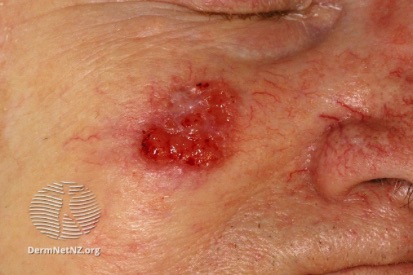
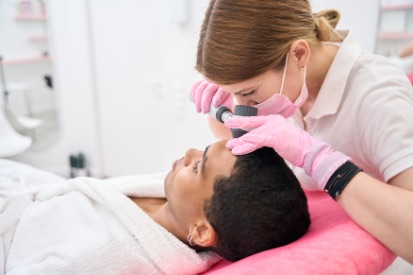
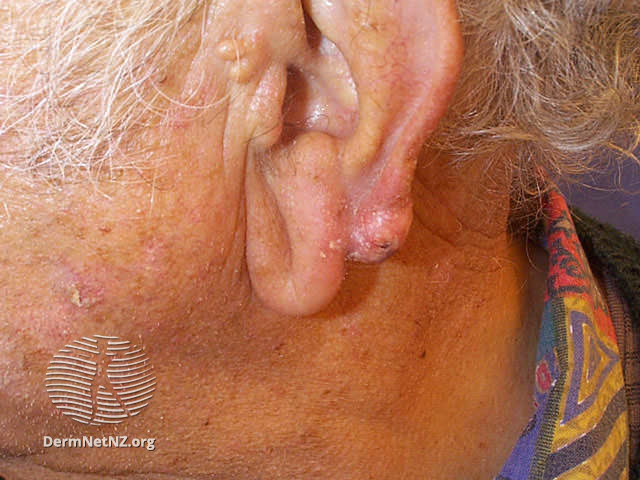
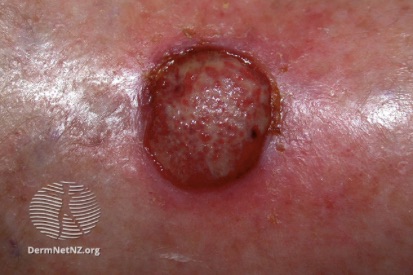
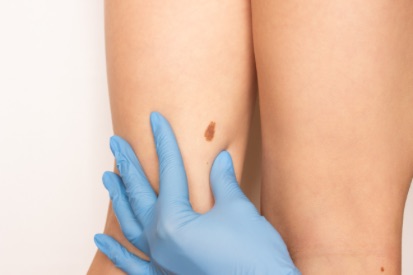
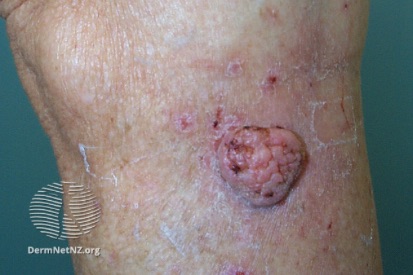
Symptoms of Squamous Cell Carcinoma
- Squamous cell carcinoma usually begins as a dome-shaped bump or a red, scaly patch of skin.
- Rough and crusty and can bleed easily when scraped.
- Changes in existing growths: changes in the appearance of existing skin growths, such as warts or scars.
- Persistent sore: a sore or lump that doesn't heal, or a lesion that keeps recurring.
What Causes Squamous Cell Carcinoma?
- Squamous cell carcinoma (SCC) can affect individuals across diverse backgrounds.
- It is more prevalent in those with regular exposure to direct sunlight, especially in professions or lifestyles that involve significant sun exposure.
- While skin cancer is less common in individuals with darker complexions, they are at an increased risk for SCC in areas of the body not typically exposed to the sun.
Squamous Cell Carcinoma Prevention
Squamous Cell Carcinoma FAQs
Signs include rough, scaly patches, open sores that do not heal, raised growths, or wart-like structures.
Diagnosis involves a skin examination and a biopsy of the suspicious area to confirm SCC.
Treatments include surgical removal, cryotherapy, laser therapy, photodynamic therapy, and topical medications.
While SCC can be aggressive and may spread to other parts of the body, it is often treatable when detected early.
Prevention strategies include avoiding excessive sun exposure, using sunscreen, wearing protective clothing, and avoiding tanning beds.
Riva Dermatology offers cutting-edge treatments and personalized care for SCC, ensuring the best outcomes for patients in the Lake Norman area.
From Our QualDerm Family of Providers: Non-Melanoma Skin Cancers
Treatment Options for Squamous Cell Carcinoma
- Mohs micrographic surgery
- Excisional surgery
- Cryotherapy (freezing)
- Currettage and Electrodessication
- Chemotherapy
- Radiation
Featured Products for Sun Protection
Check your local office for current stock!
Check your local office for current stock!


